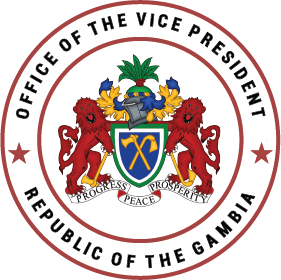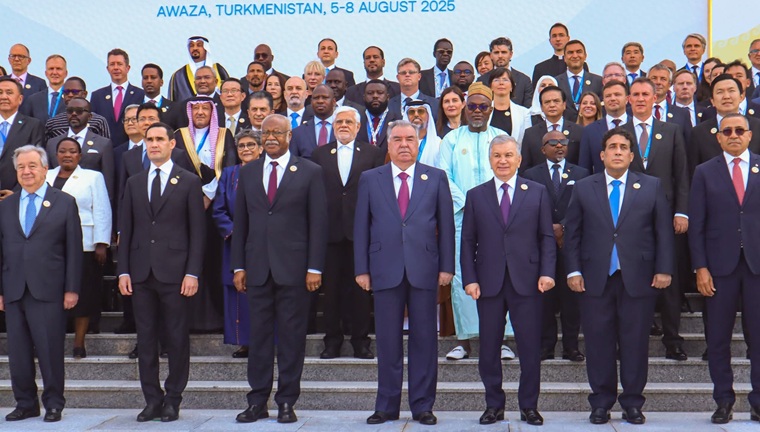His Excellency Mohammed B.S. Jallow, Vice President of the Republic of The Gambia, on Tuesday, 5 August led the country’s delegation to the Third United Nations Conference on Landlocked Developing Countries (LLDCs) held in Awaza, Turkmenistan, under the theme “Driving Progress Through Partnership.”
The Vice President was accompanied by His Excellency Lamin Dibba, Permanent Representative of The Gambia to the United Nations, Mr. Abdoulie T.B. Jarra, Permanent Secretary at the Office of the Vice President, and other senior government officials.
Delivering a compelling keynote address, Vice President Jallow reaffirmed The Gambia’s strong commitment to supporting the development aspirations of landlocked developing countries, particularly those within the West African subregion, despite The Gambia itself not being landlocked.
“Although The Gambia is not landlocked, we conduct a significant portion of our trade through our land borders and share deep trade and transit interdependence with our LLDC neighbors,” the Vice President stated.
He noted the ongoing global crises—from the COVID-19 pandemic to climate change and geopolitical instability—that have disproportionately impacted the 32 LLDCs, home to more than 570 million people. He emphasized that while geography cannot be altered, its negative impact on development can and must be mitigated through global cooperation and innovative solutions.
Vice President Jallow endorsed the five strategic priorities outlined in the LLDCs’ Programme of Action, including trade facilitation, regional integration, infrastructure development, resilience building, and structural transformation. He also welcomed key initiatives such as the creation of Regional Agricultural Research Hubs and Infrastructure Investment Finance Facilities.
He cited The Gambia’s strategic role as a coastal access point for LLDCs in West Africa, particularly through the Port of Banjul, which supports transit trade for neighboring countries. Jallow highlighted efforts made by The Gambia to streamline customs procedures and modernize infrastructure to ease trade flow across borders.
“This is not merely about facilitating trade,” he said, “it’s about improving lives, supporting livelihoods, and upholding the dignity of people who are unfairly burdened by their landlocked status.”
Jallow further called for reforms in the global development finance architecture, urging donor countries and development partners to meet their commitments of allocating 0.15 to 0.20 percent of Gross National Income (GNI) in Official Development Assistance (ODA) to LLDCs and
Least Developed Countries (LDCs). He expressed concern over the sharp decline in foreign direct investment to LLDCs and the growing risk of debt distress facing many of them.
On climate change, he described LLDCs as being on the “frontlines of a crisis they did not cause,” calling for equitable access to climate financing, especially for adaptation and loss and damage mechanisms.
He also stressed the importance of digital inclusion, investment in technological infrastructure, and capacity building for data collection and analysis—critical areas for ensuring LLDCs can fully participate in the digital economy.
“Partnerships are the cornerstone of any durable solution,” he emphasized, calling for stronger South-South cooperation and broader multistakeholder engagement.
In conclusion, Vice President Jallow described the LLDC3 Conference as a “decisive call to action” and a platform to advance inclusive, sustainable development. He pledged The Gambia’s unwavering support for LLDCs and the global commitment to ensuring that “no country is left behind simply because of its geographic location.”

